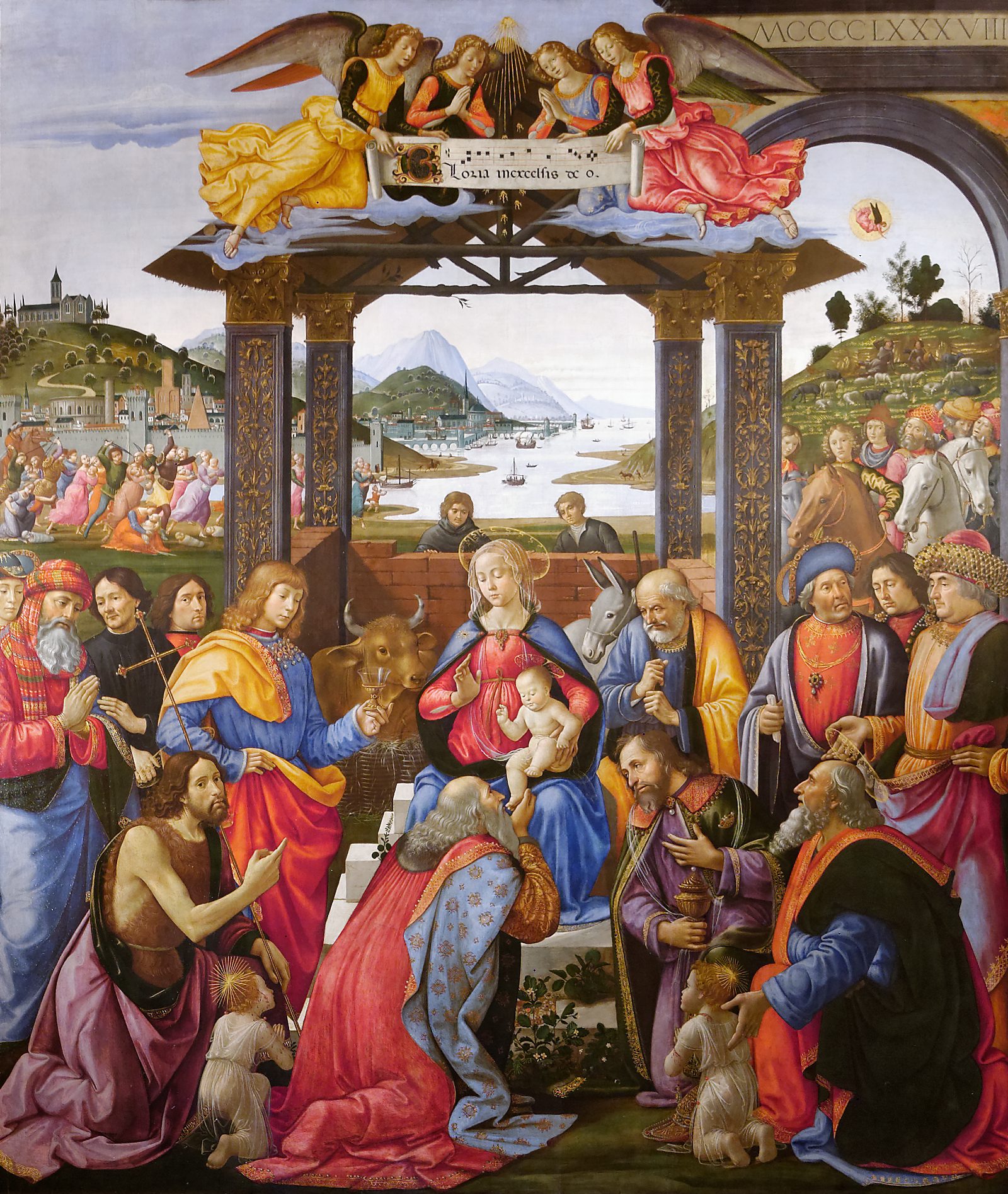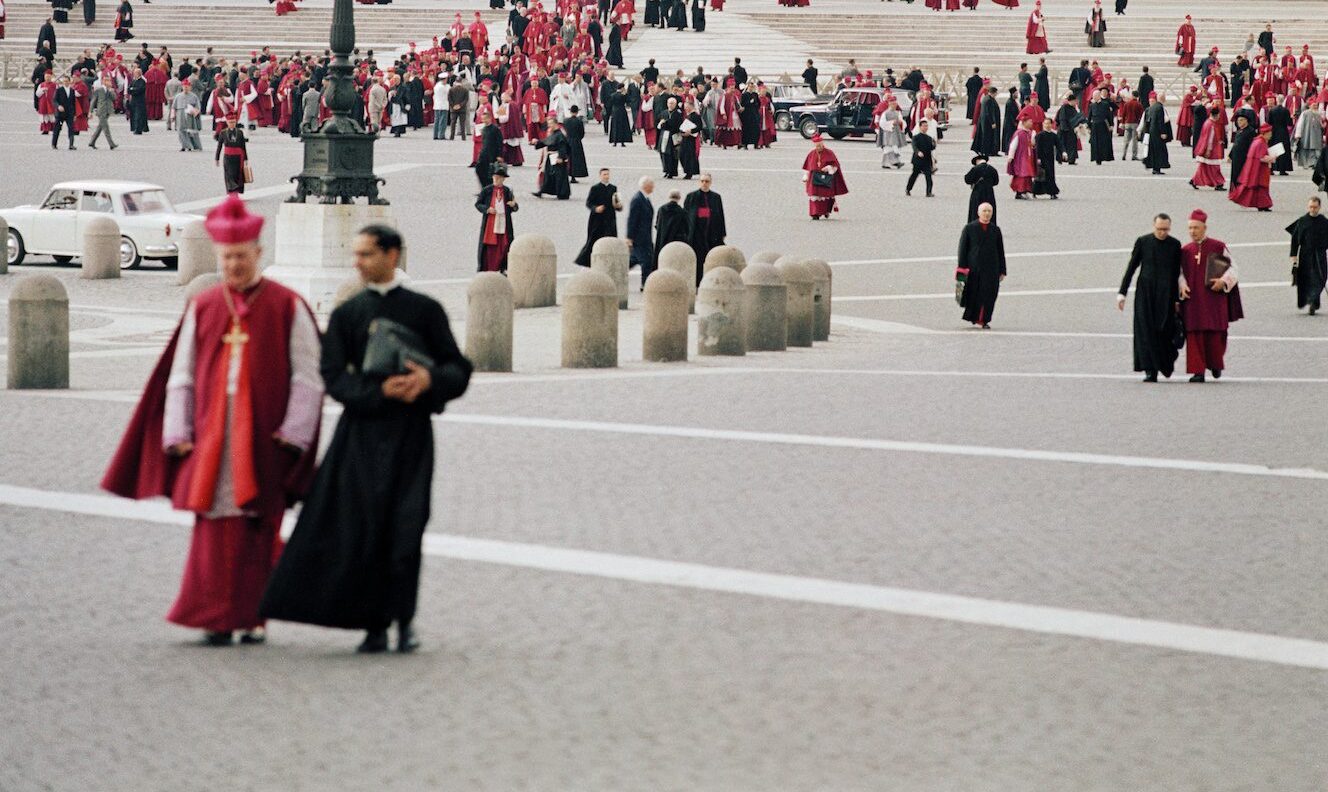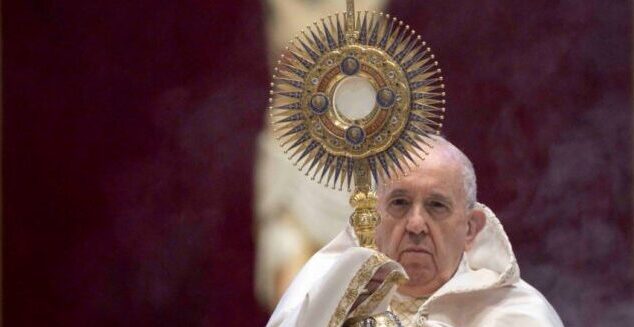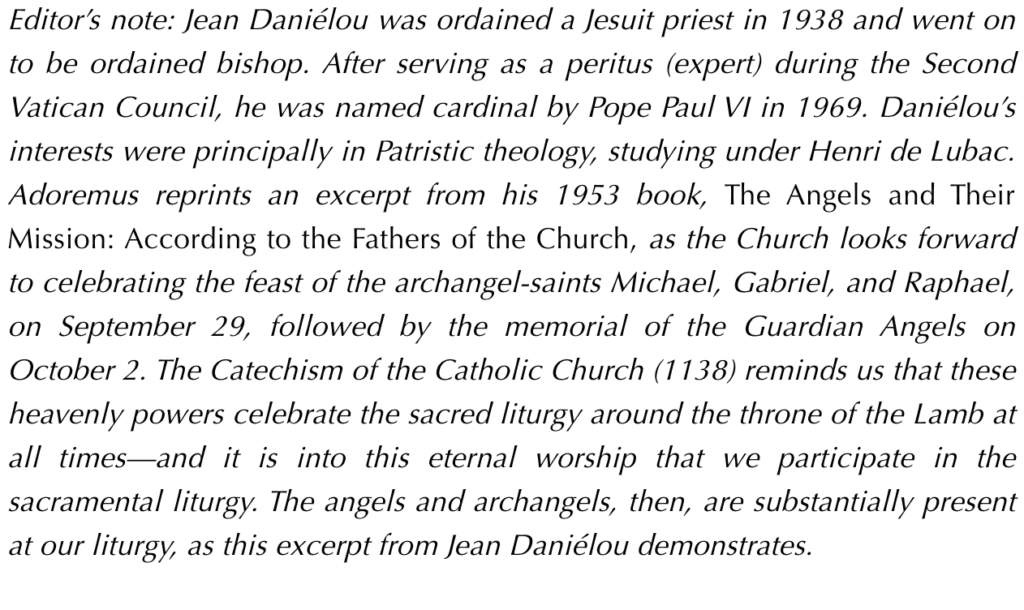
As the angels preside over baptism, so they are equally present at every Christian assembly. “On the question of the angels the following is a necessary conclusion: If the angel of the Lord shall encamp round about them that fear Him, and shall deliver them; and if what Jacob says is true not only in his own case but also in the case of all those who are dedicated to the omniscient God, when he speaks of the angel that delivereth me from all evils: then it is probable that, when many are assembled legitimately for the glory of Christ, the angel of each encamps round each of them that fear God, and that he stands at the side of the man whose protection and guidance has been entrusted to him. Thus, when the saints are assembled together, there is a twofold Church present, that of men and that of angels.1
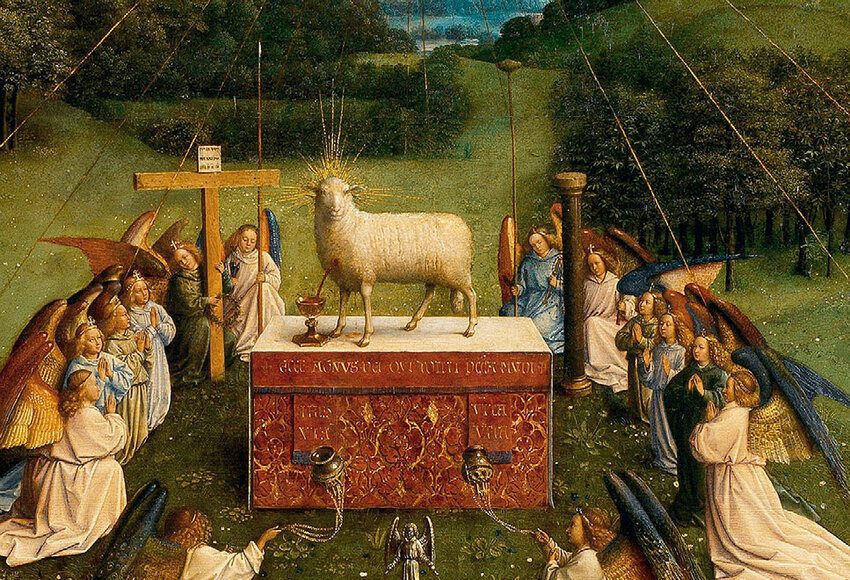
The synaxis [i.e., the celebration of the assembly] includes readings and a homily. The angels assist at the first half, drawn, Origen tells us, by the reading of the Scripture which they delight in hearing.2 He who delivers the homily should not forget that they are listening and judging it. “I have no doubt that there are angels in the midst of our assembly too, not only the Church in general, but each church individually—those of whom it is said that ‘their angels always see the face of my Father who is in heaven.’ Thus we have here a twofold Church, one of men, the other of angels. If what we say is in conformity with both reason and the meaning of Scripture, the angels rejoice and pray together with us. And since there are angels present in Church—that is, in the Church which deserves them, being of Christ—women when they pray are ordered to have a covering upon their heads because of those angels. They assist the saints and rejoice in the Church. We indeed do not see them because our eyes are grown dim with the stains of sin; but the Apostles see them, as they were promised: ‘Amen, amen, I say to you, you shall see the heavens opened and the angels of God going up and coming down upon the Son of Man.’ And if I had this grace which the Apostles had, I would see the multitude of angels that Eliseus saw, when Giezi, standing right beside him, saw nothing.”3
But the angels are present especially at the Eucharistic sacrifice. The Mass is, actually, a sacramental participation in the liturgy of heaven, the cult officially rendered to the Trinity by the full host of the spiritual creation. The presence of the angels introduces the Eucharist into heaven itself. They help to surround it with a sacred mystery. “The angels surround the priest,” writes St. John Chrysostom. “The whole sanctuary and the space before the altar is filled with the heavenly Powers come to honor Him who is present upon the altar.”4 And elsewhere: “Think now of what kind of choir you are going to enter. Although vested with a body, you have been judged worthy to join the Powers of heaven in singing the praises of Him who is Lord of all.”5 “Behold the royal table. The angels serve at it. The Lord Himself is present.”6
Erik Peterson, in The Book of the Angels, has shown that the participation of the angels in the Christian cult made clear its official character. There is only one priestly activity, and that is Jesus Christ’s. By it the whole of creation glorifies the Trinity. This is the same activity that is offered by the angels in heaven and the saints on earth. This participation appears in the New Testament, where the liturgy of the Church is presented as a participation in that of the angels. Thus, in the Epistle to the Hebrews 12:22-24, we read: “But you have come to Mount Sion, and to the city of the living God, the heavenly Jerusalem, and to the company of many thousands of angels, and to the Church of the first-born who are enrolled in the heavens, and to a sprinkling of blood which speaks better than Abel.” As for the Apocalypse, it is the vision of the Christian Sunday worship that the visionary sees as prolonged in the liturgy of heaven.
The angels are associated with the different parts of the sacrifice.8 Theodore of Mopsuestia shows them symbolized by the ministers who arrange the offerings upon the altar: “By means of the deacons who minister in what is being accomplished we can see in spirit the invisible Powers ministering as they assist in this ineffable liturgy.”9 Further on he adds: “You must realize that there is an image of the invisible Powers in this service that the deacons are charged with now, as they bear the offering for the oblation…. And when they have brought it in, it is placed upon the holy altar by the angels for the perfect fulfillment of the Passion. The deacons who spread the cloths upon the altar recall the burial linens; and those who, once the sacred Body has been produced, stand on either side and fan the air around it, represent the angels who remained by Christ all the while He was dead, to honor Him, until they had seen His Resurrection.”10
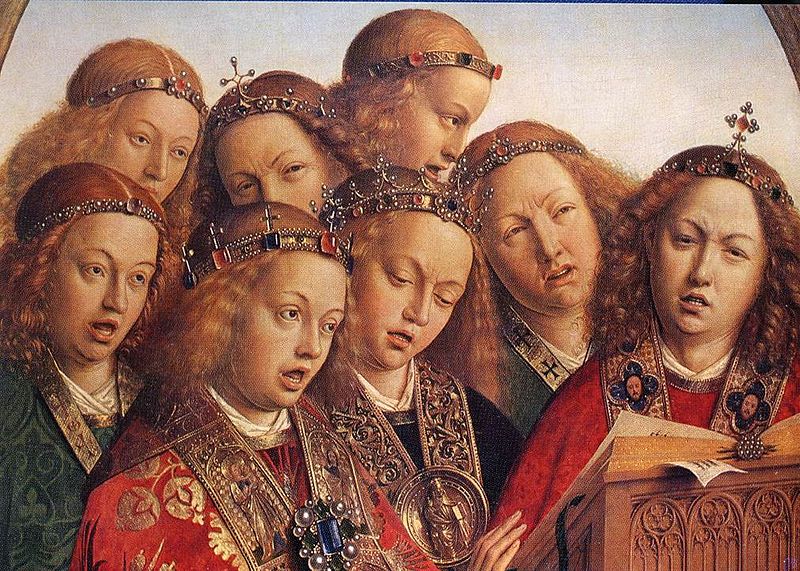
It is easy to see how the display of the liturgy of earth is a visible refection, an efficacious symbol, of the heavenly liturgy of the angels. This unity of the two cults is expressed by the liturgy itself in the Preface, where it invites the community of the Church to unite with the Thrones and the Dominations, the Cherubim and the Seraphim, to sing the angelic hymn of praise, the Thrice-Holy: “Reflect upon whom it is that you are near and with whom you are about to invoke God—the Cherubim. Think of the choirs you are about to enter. Let no one have any thought of earth (sursum corda), but let him lose himself of every earthly thing and transport himself whole and entire into heaven. Let him abide there beside the very throne of glory, hovering with the Seraphim, and singing the most holy song of the God of glory and majesty.”11 Elsewhere Chrysostom remarks that the Gloria in Excelsis is the chant of the lower angels. Even the catechumens are permitted to join in it. But the Sanctus is the chant of the Seraphim; it leads into the very sanctuary of the Trinity, and thus “it is reserved for the initiated, the baptized.”12
Theodore of Mopsuestia also stresses this participation in the angelic liturgy in the Trisagion [“Holy God, Holy Mighty, Holy Immortal, have mercy on us”]. This point is especially dear to the tradition of Antioch. “The priest here mentions all the Seraphim who raise this song of praise toward God, the same song that blessed Isaias heard through a divine revelation and transmitted in Scripture. This is the praise which we all assemble together to sing at the top of our voices, so that we sing the same hymns as the invisible natures…. By this means we show the greatness of the mercy He has bestowed freely upon us. A religious fear fills our conscience, either before or after we have cried out, ‘Holy!’”13 This chant of the Seraphim expresses holy fear. It describes the awe felt by even the highest creatures in the presence of the infinite divine excellence. And this enables us to understand better the holiness of the Eucharist which leads us, with the Seraphim, into the presence of the All-Holy God, hidden only by the fragile species of bread and wine.
Finally, the presence of the angels in the Eucharist appears in the very act of offering the sacrifice. The Roman liturgy itself witnesses to this when it asks of God that “the offerings be borne by the hands of Thy Holy Angel unto Thy high Altar.”14 The Apocalypse already shows the angels, in their heavenly liturgy, offering “the prayers of the saints” under the appearance of “cups of gold filled with perfume” (5:8). This intercessory role appears in the prayer of all prayers, the central act of worship, the priestly activity of Christ. Thus Chrysostom can write: “It is not only men who raise this cry filled with holy awe, but the angels prostrate themselves before the Lord, the archangels pray to Him. Just as men cut palm branches and wave them before their kings to move them to think of love and mercy, so at this moment the angels present the very Body of their Lord as if it were a palm branch and they pray to Him for all humanity.”15
This participation of the angels extends to the whole liturgical life and especially to the celebration of the Christian feasts. The mysteries of Christ are celebrated by the heavenly powers at the same time as they are by the Church on earth. Thus Gregory Nazianzen writes, regarding the Feast of the Epiphany, “Together with the shepherds glorify God; sing His praises with the angels; join the choirs of the archangels. Let this festive occasion join the powers of those in heaven and those on earth. For I am certain that they are rejoicing today and celebrating this feast together with us, since they are friends of God and man just as those whom David shows us rising with Christ after the Passion, going on ahead of Him and vying with each other to lift up the gates.”16
The last sentence is an allusion to Psalm 23, where tradition shows the Powers that ascend with Christ at His Ascension bidding the keepers of the gates of heaven lift their lintels to let the King of Glory enter. Just as they participated in His mysteries at the time of their historical accomplishment, the angels continue to be associated with their liturgical commemoration.
But it is Chrysostom who develops this idea to its greatest extent. He explains that, in order to lend greater splendor to the feast of the Ascension, he has invited the faithful to celebrate it in the Martyrium of Romanesia: “The angels are present here. Then angels and the martyrs meet today. If you wish to see the angels and the martyrs, open the eyes of faith and look upon this sight. For if they very air is filled with angels, how much more so the Church! And if the Church is filled with angels, how much more is that true today when their Lord has risen into heaven! The whole air about us is filled with angels. Hear the Apostle teaching this, when he bids the women to cover their heads with a veil because of the presence of the angels.”17
And again, in regard to the Resurrection he writes: “It is not only earth, but heaven as well which has part in today’s feast…. The angels exult, the Archangels rejoice, the Cherubim and the Seraphim join us in the celebration of today’s feast…. What room is there for sadness?”18
Jean Daniélou was ordained a Jesuit priest in 1938 and went on to be ordained bishop and, after serving as a peritus (expert) during the Second Vatican Council, was named cardinal by Pope Paul VI in 1969.
Footnotes
- Origen, De or., 31, 5 (ACW 19).
- Hom. in Jos., 20, 1.
- Hom. in Luc., 23.
- De sac., 6, 4.
- Adv. Anom., 4.
- Hom. in Eph., 1, 3.
- See Clement of Alexandria:7 he angels of God serve the priests and deacons in the ministering of earthly affairs.” (Strom., 7, 1; Hom in Lev., 9, 8.)
- Hom. Cat., 15, 24.
- Hom. Cat., 25-27.
- Chrysostom, Adv. Anom., 4.
- Hom. in Col., 3, 8. On the Trisagion as the hymn of the angels in the liturgy of the Mass, see Chrysostom, Adv. Anom., 1, 6; Cyril of Jerusalem, Catech., 23, 6.
- Hom. Cat., 16, 7-9.
- See B. Botte, “L’ange du sacrifice,” Rech. Théol. Anc. Méd., 1929, pp. 285-308.
- Adv. Anom., 3. For Hilary the Eucharist is distributed to the faithful by the ministry of the angels: “This service is no doubt performed through the heavens, that is, by the angels” (Tract. Ps. 67). See J. Duhr, Dict. Spirit., I, 591.
- Or., 39, 17.
- Serm. asc., 1.
- Serm. res., PG 50, 436.
